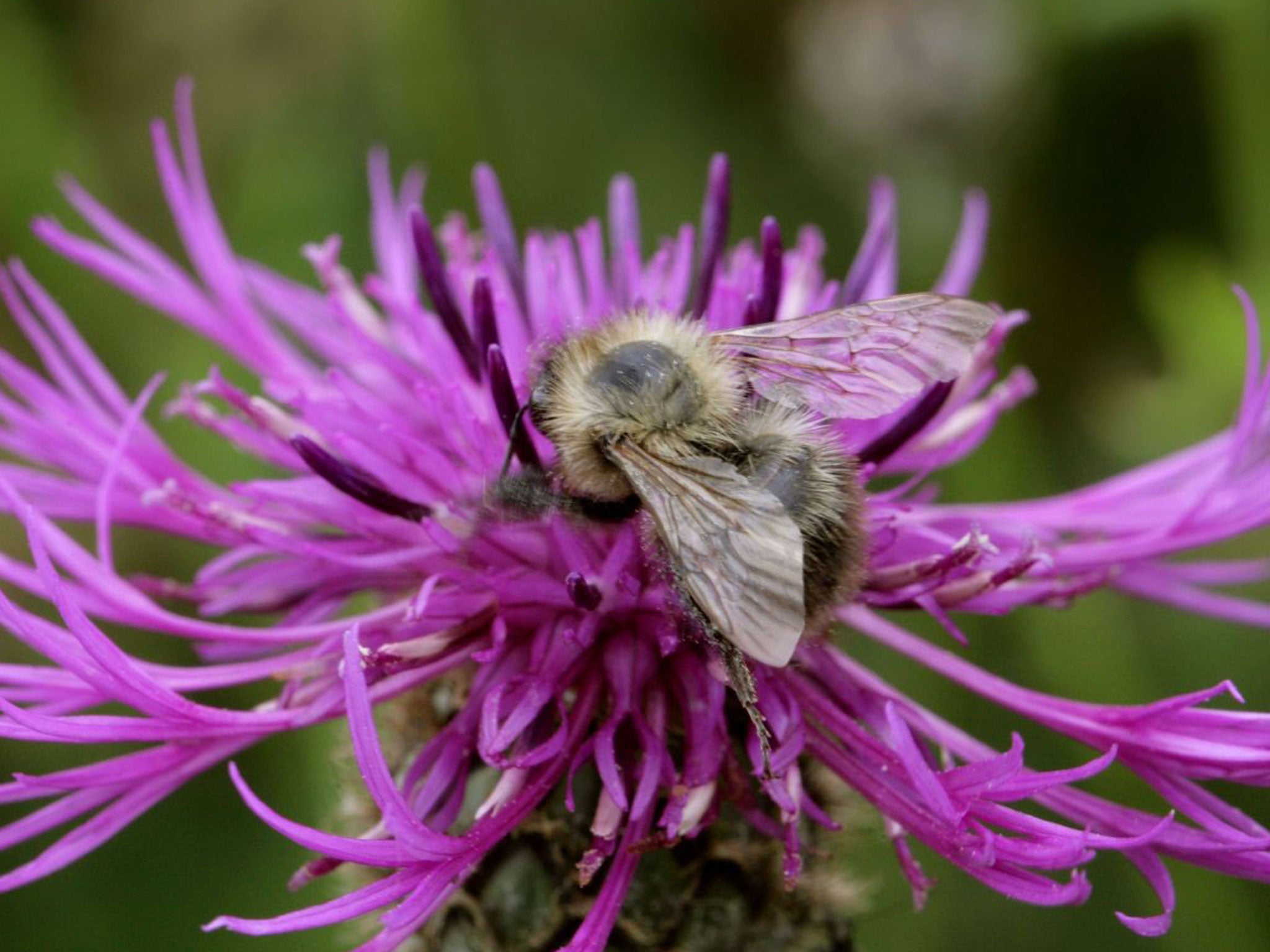What’s the buzz? The bumblebee is back!
Conservationists stunned by the insects’ rapid recovery

Your support helps us to tell the story
From reproductive rights to climate change to Big Tech, The Independent is on the ground when the story is developing. Whether it's investigating the financials of Elon Musk's pro-Trump PAC or producing our latest documentary, 'The A Word', which shines a light on the American women fighting for reproductive rights, we know how important it is to parse out the facts from the messaging.
At such a critical moment in US history, we need reporters on the ground. Your donation allows us to keep sending journalists to speak to both sides of the story.
The Independent is trusted by Americans across the entire political spectrum. And unlike many other quality news outlets, we choose not to lock Americans out of our reporting and analysis with paywalls. We believe quality journalism should be available to everyone, paid for by those who can afford it.
Your support makes all the difference.Bumblebees teetering on the verge of extinction in the UK have stunned conservationists by staging a sudden revival.
A project that began as an attempt to reintroduce an extinct bumblebee to Britain has sparked a comeback by five other species whose numbers have dwindled alarmingly in recent decades.
Conservationists say the speed of their recovery suggests that the bees can cope with some pesticide use by farmers, if they have wild flowers to feed on and a place to live.
Dr Nikki Gammans, of the Short-Haired Bumblebee Project, said: “It’s not a doom-and-gloom scenario. We can actually reverse this trend.”
Pesticides have been blamed for killing off many bumblebees, which are vital as they pollinate fruit and vegetables – a free service worth some £560m a year to the UK economy.
Seven of the 25 bumblebee species are considered threatened enough to be in the UK Biodiversity Action Plan. Five of these, the brown-banded carder, moss carder, red-shanked carder, large garden and shrill carder, have been found in increasing numbers at the reintroduction project in Kent.
Short-haired bumblebee queens – brought to the UK from Sweden – nested this autumn for the first time in this country for 25 years.
Conservationists began the project in 2009 by encouraging wild flowers to grow on a 20-hectare plot near Dungeness in Kent. They have now expanded this prime bumblebee habitat across more than 800 hectares in Kent and Sussex. The UK has lost over 97 per cent of its wild flower meadows due to agricultural intensification and urbanisation.
The programme has attracted attention in France, where officials believe the researchers may have found a way to halt bumblebee decline across Europe. Cédric Vanappelghem, a conservation officer in northern France, said its “results are good”, and added that they were planning to study bumblebees there shortly.
Larry Cooke, a Romney Marsh farmer who has been taking part in the project, said: “If we don’t have bumblebees, we won’t have pollination. If we don’t have pollination, you won’t have food for the country.”
Join our commenting forum
Join thought-provoking conversations, follow other Independent readers and see their replies
Comments